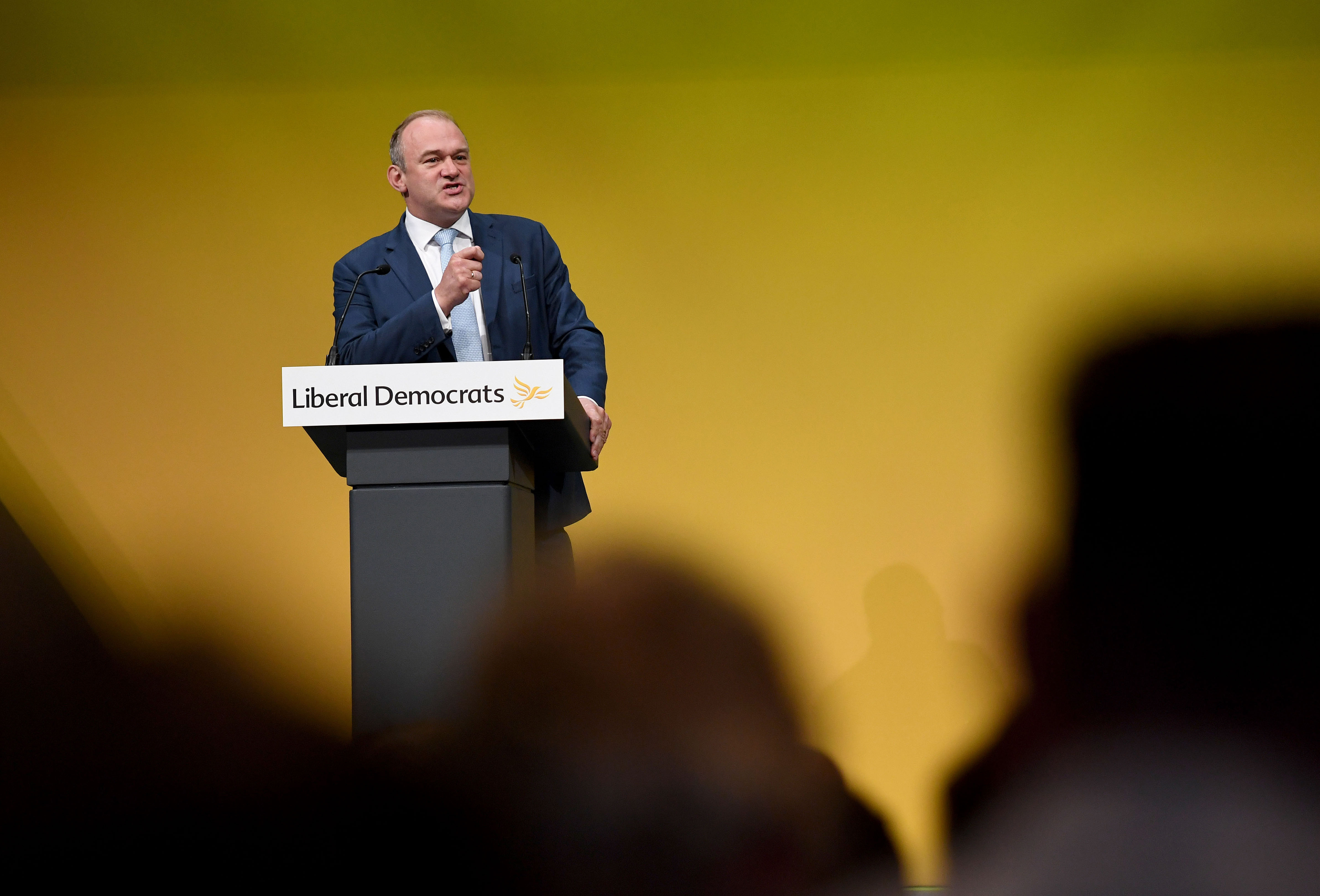For many Lib Dems, this leadership election felt like an existential choice. The party is now on its fourth leader in almost as many years, while Brexit has left the party a polarising – and increasingly irrelevant – force in British politics. Sir Ed Davey made clear that he knows his party is facing serious problems during his livestreamed acceptance speech. The MP for Surbiton explained: ‘Our party has lost touch with too many voters.’
Davey has been acting leader since Jo Swinson lost her seat at the 2019 general election – and he was widely seen as the favourite during the contest. In the event, he won twice as many votes as the more radical Layla Moran. Seen by many in the party as a safe, if dull, pair of hands, the question is whether he can actually restore the Lib Dems’ electoral fortunes. A recent YouGov poll puts the party on just 6 per cent; half of what the Lib Dems got at their dismal 2019 election outing.
‘The Lib Dems biggest hope is that forces outside their control will restore their fortunes’
Part of this process of regaining voters’ trust may be a softening of the party’s Brexit position. Davey explained this morning that he wanted to deal with ‘uncomfortable truths’ about the party’s failures. One of those truths, he revealed during his leadership bid, was that the party should never have backed a revoke position at the last election. What’s more, Davey said he wanted Leave voters to feel comfortable voting for his party again, adding: ‘We have to face the facts of three disappointing general election results… As leader, I am telling you that I have got the message.’
In reality, the choice for members was less about policy than it was about tone. There was little to distinguish Davey and Moran when it came to their respective policy offerings: both had raised the prospect of a universal basic income and both had committed to increased state spending on green industries. Davey’s slogan throughout the race had been his plan to make the UK a ‘greener, fairer, more caring country’. That final commitment reflects part of his personal history: Davey spent much of his childhood caring for his dying mother while his son is also severely disabled. Championing carers makes good electoral sense too. As he said in a recent interview, there are ten million carers around the country: ‘That’s three times as many people as who voted for us at the last election.’
The real difference came in the character of the candidates. Moran attempted to play up her relative outsider status in Westminster, having only been elected in 2017. She appeared keen to court disaffected Corbynites when she told Business Insider that she wanted the Lib Dems to be ‘more radical than Labour’ (a comment that caused concern among party bigwigs, leading her to partially row back on the comments).
In one of the few areas of substantive disagreement, Moran ruled out another coalition with the Tories under her leadership, arguing that the 2010 pact had damaged trust in the party. This was read by many as a tacit attack on Davey himself, who served as energy secretary under David Cameron. Davey has attempted to use his past to his advantage by emphasising his ministerial experience (a rare commodity among Lib Dems) and arguing that he ‘took the fight to the Tories’ inside government itself.
Now he’ll need to take on the Tories outside cabinet. In the 91 seats where the Lib Dems came second in the last election, 80 are currently held by a Conservative MP. This is why the election of a more centrist Labour leader isn’t necessarily as damaging to Lib Dems prospects as one might initially assume. In fact, a moderate Labour leader is a key precondition for any successful Lib Dem surge. Disaffected Tory voters will only feel able to vote for the third party if they are comfortable with the prospect of strengthening Labour – a fact that was brutally played out under Corbyn’s leadership. As former Lib Dem MP Lembit Öpik recently put it: ‘The Lib Dems biggest hope is that forces outside their control will restore their fortunes.’
Davey’s first big test will be the Scottish and local elections next May. The Lib Dems pride themselves on their effectiveness in local government and see it as a bridgehead for establishing space for a viable Lib Dem candidate at the parliamentary elections. Davey has also suggested that he is willing to take the fight to Scotland, arguing his party has ‘a vital constitutional role to play’ as a left of centre, pro-Union alternative to the SNP. But the question of whether he has the skill to restore the party’s standing remains to be seen.








Comments